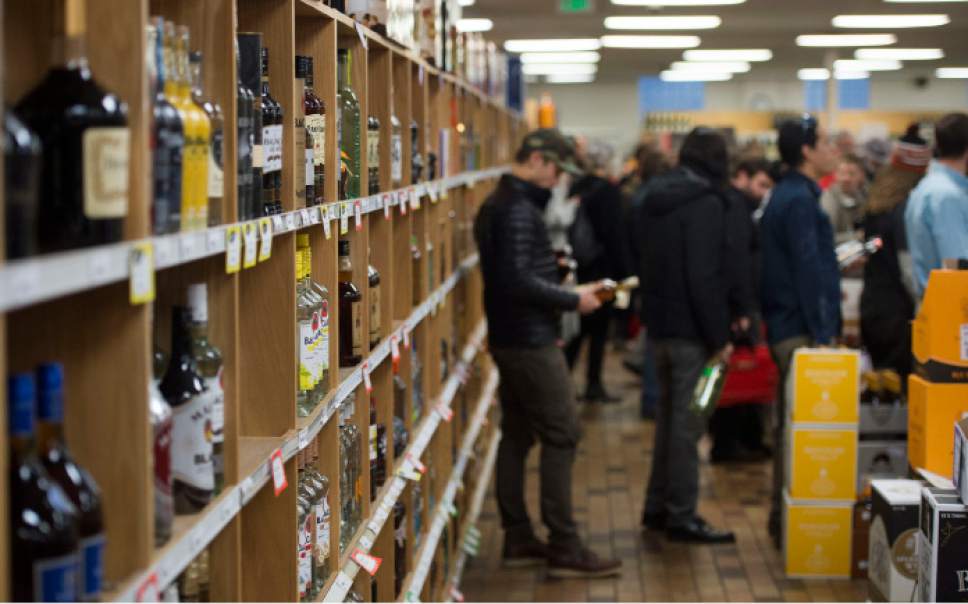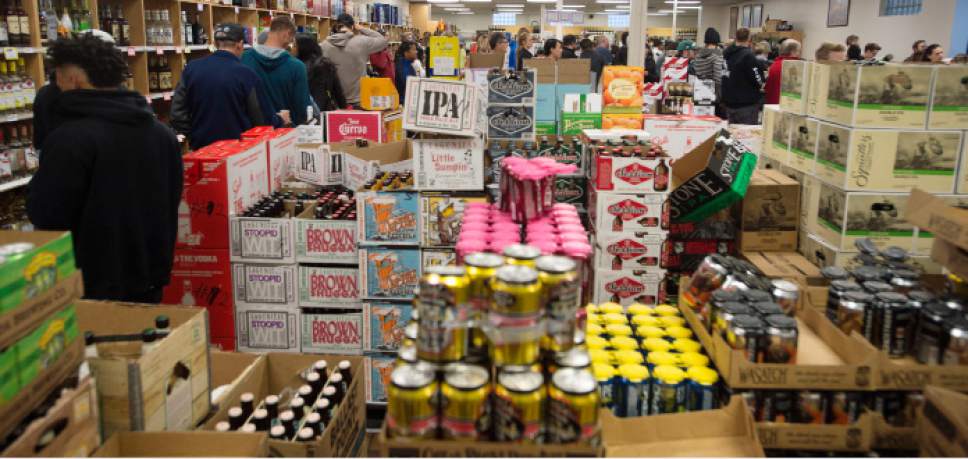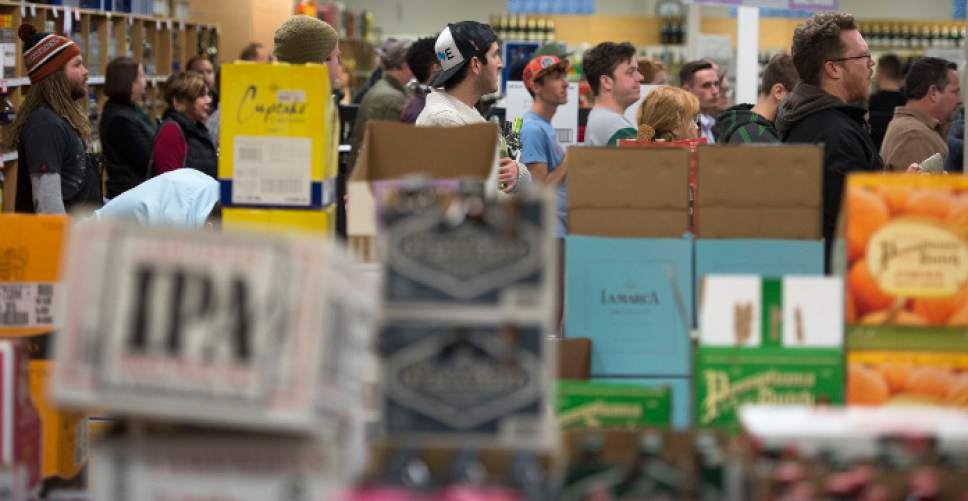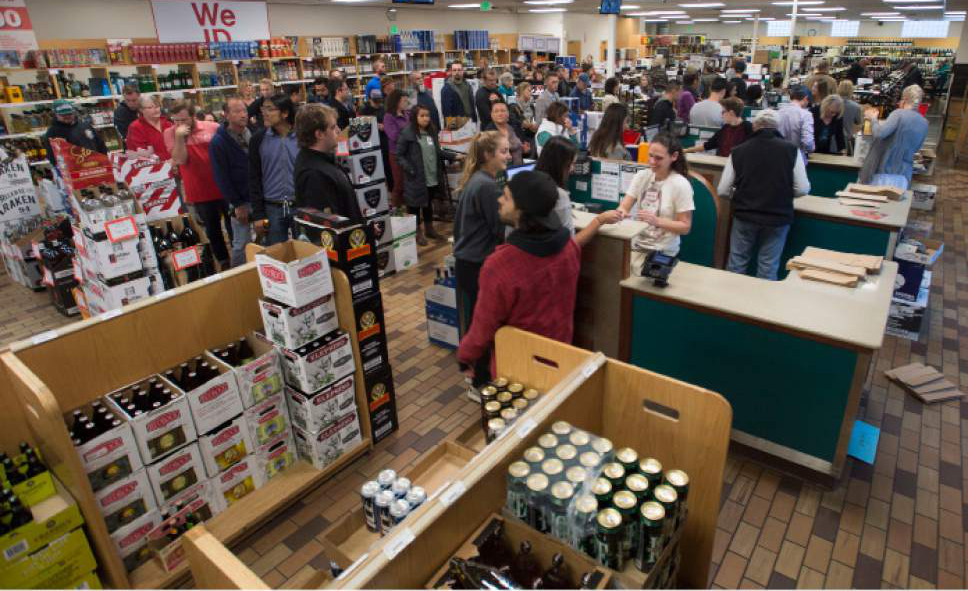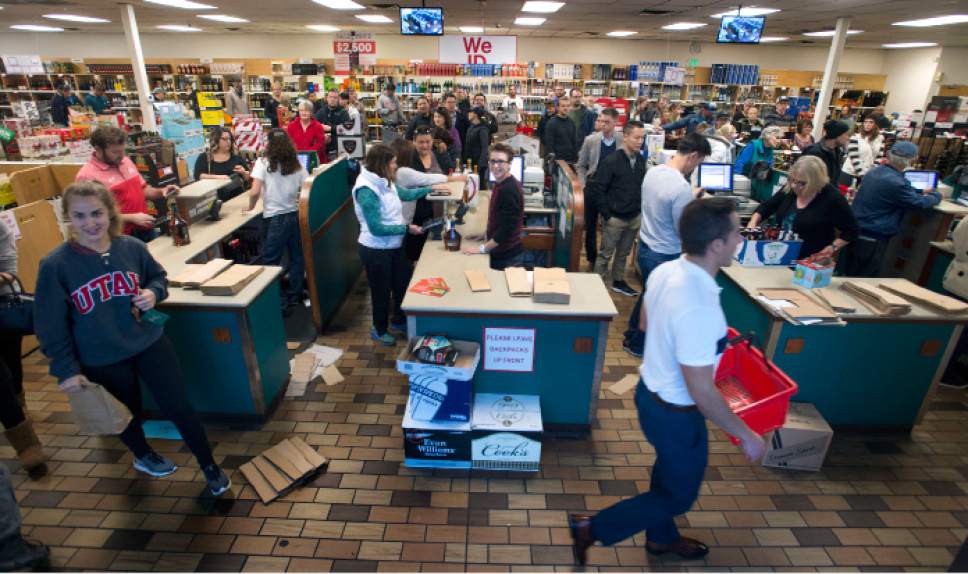This is an archived article that was published on sltrib.com in 2016, and information in the article may be outdated. It is provided only for personal research purposes and may not be reprinted.
Aaron Walker and his wife had just moved to Salt Lake City last year when they made the mistake of trying to buy liquor on the Wednesday before Thanksgiving.
"Never again," Walker vowed Tuesday, as he filled his shopping cart at the Sugar House store with wine and beer for the holiday.
The day before Thanksgiving is typically the busiest day of the year at Utah's 44 state-owned liquor stores and this year is expected to continue the tradition, according the Utah Department of Alcoholic Beverage Control.
"If the pattern of the last few years holds true, the DABC expects record sales in both dollar amounts and bottles sold," said DABC spokesman Terry Wood.
Those who waited until Wednesday faced limited parking, empty shelves and long checkout lines.
In 2015, state alcohol sales totaled $3.2 million on the day before Thanksgiving, DABC statistics show. That's an increase of nearly 5 percent from 2014, when the one-day sales were $3 million. It's also triple a typical Wednesday, when sales average $930,116.
For the five days before Thanksgiving 2015, sales were $10.2 million, an increase of 8.6 percent from 2014, when the state made $9.3 million in alcohol sales, DABC numbers show.
It's not just dollar amounts that go up, Wood said — so does the number of bottles sold.
Last year, 337,314 bottles of wine, high-alcohol beer and spirits were sold the Wednesday before Thanksgiving, up from 331,172 in 2014. On a typical Wednesday, state liquor stores sell 104,387 bottles of booze.
Janice Jedrowicz stopped in the Sugar House liquor store Tuesday afternoon, she said, "because I knew it was going to be madness" later. But she still had to wait in a long line because only two cashiers were on duty.
She was disappointed that the wine she wanted was out of stock and lamented that the state could improve the situation by changing some of the liquor laws on the books.
"They are losing money by not privatizing liquor sales," she said, "or at least putting wine and [full-strength] beer in the grocery stores."


